The Italians who prefer to drink American coffee
- Published
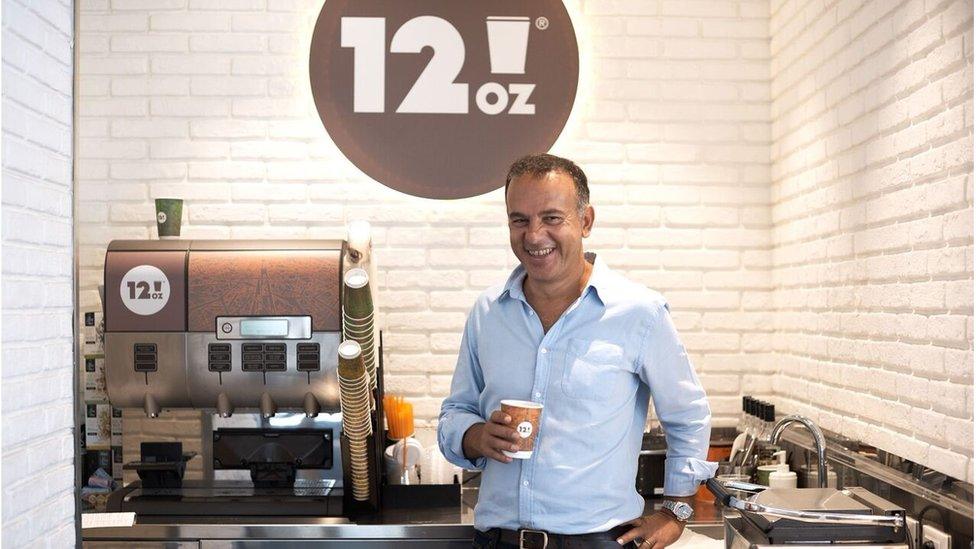
12oz Coffee Joint founder David Nathaniel says the chain has been welcomed in Italy
In Italy coffee is synonymous with espresso, downed quickly and without ceremony. But a new breed of American-style coffee shops is drawing in younger Italians.
"We like it here because we can study and be connected online. We both prefer American-style coffee than Italian and we love the different style of cakes," say Aurora, 13, and Linda, aged 14.
It's just before lunchtime and we're sitting inside 12oz Coffee Joint - a self-styled American coffee shop near the Duomo in Milan.
'Un caffe'
Italy is viewed by many as the world capital of coffee - wherever you turn you see a bar serving espresso, cappuccino or caffe macchiato as well as the traditional brioche.
In these places, if you asked for a latte you would be served a glass of milk. Ordering an espresso is also unnecessary; "un caffe" is all you need to say. Coffee and espresso are synonymous in Italy.
But in here the drink options are far more exotic, with americano, iced cinnamon lattes or caramel macchiatos all on offer.
It's not just the drinks. The counter is piled high with a vast array of doughnuts, muffins, brownies and bagels.
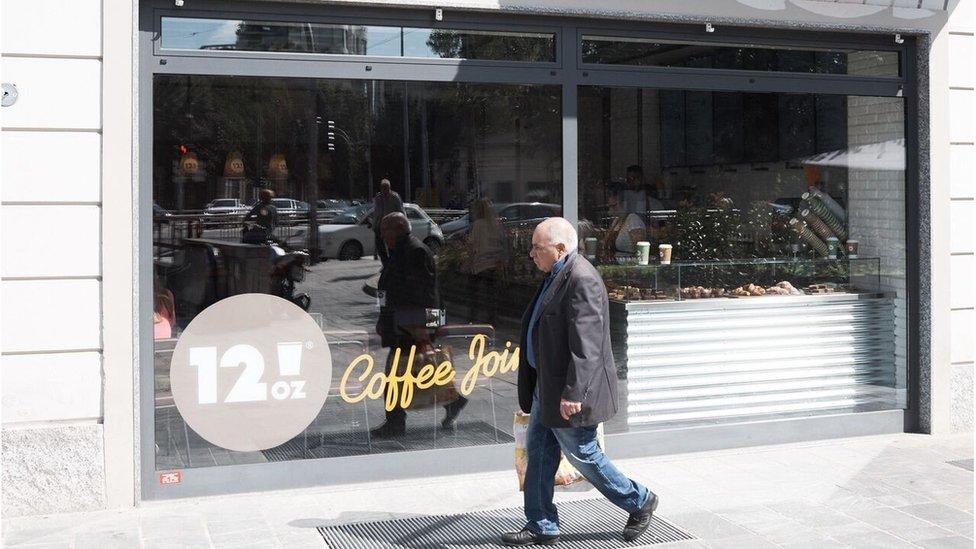
12oz Coffee Joint has a coffee shop near the Duomo in Milan.
One customer, Alberto, who is 32, says it's these kinds of differences that have drawn him in.
"I enjoy coming here because it's stylish and has a young fresh feel to it compared to Italian coffee shops."
It's young Italians like these who are starting to shake up the traditional Italian coffee culture in Italy.
12oz Coffee Joint opened its first store in 2015 and there are now six in Milan and one opening soon in Verona. The chain wants to expand to major cities such as Rome and Venice.
But what made Italian founder David Nathaniel want to sell American coffee in his home country?
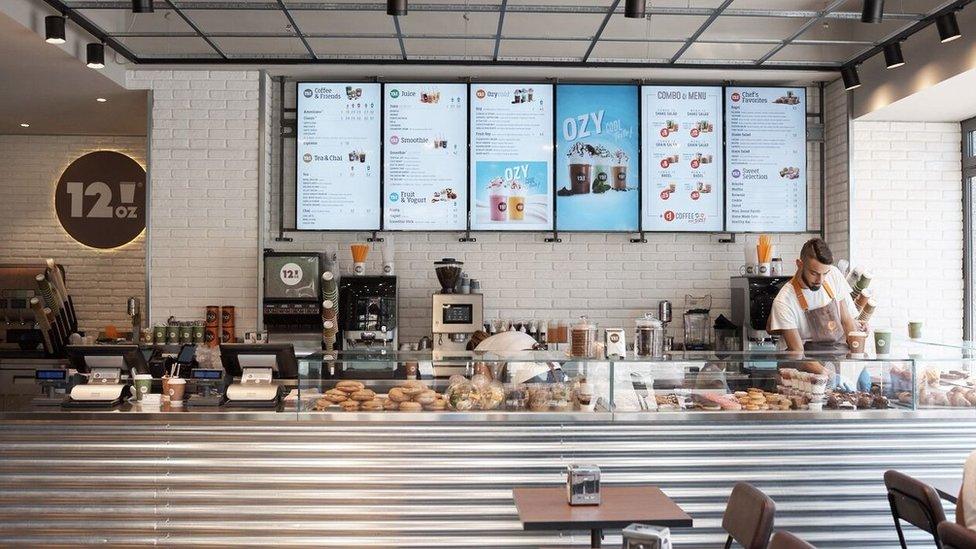
The chain also serves US-style cakes
"I have two children who are teenagers - whenever they went abroad they always wanted to have photos posted on social media with big cups of coffee with whipped cream," he says.
"Then one day I saw a typical woman from Milan with her Louis Vuitton handbag with a big cup of coffee and she became my muse.
"If she was walking the streets of Milan with a big cup of coffee then the time had come."
Despite the non-traditional concept, he says the coffee shop was broadly welcomed when it opened.
"We had no anger or opposition but it was funny to see the faces of people who would come in and not understand the concept.
"Their reactions to drinking coffee in big paper cups was quite amusing - a lot of professionals in the market actually felt there was a need for such a chain."
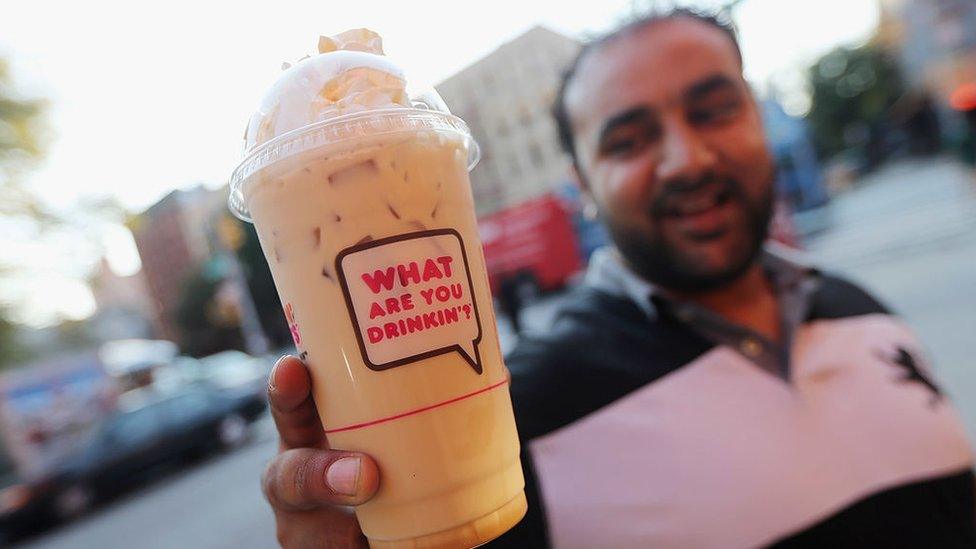
Young Italian coffee drinkers are keen to experiment
Jonny Forsyth, global drinks analyst at market research firm Mintel, says traditional coffee shops have failed to keep up with changing tastes.
"Italian coffee shop culture is so traditional that it has determinedly ignored modern consumer trends.
"It is also very rare to find flavoured coffee, although some outlets in the north serve coffee with Nutella or hazelnut paste," he says.
Changing trends
Yet Mintel's research has found that Italians, particularly younger ones, are keen to experiment beyond the traditional espresso.
Its research showed a majority (64%) of 16-24 year-old Italian coffee drinkers like trying different flavours of coffee (e.g. vanilla, hazelnut) at home compared to 42% of those aged 55 and above.
Mintel also found that over three-quarters of 16-24-year-olds who drink coffee in a typical week like the taste of milky coffee compared to 60% of regular Italian coffee drinkers aged 45 and above.
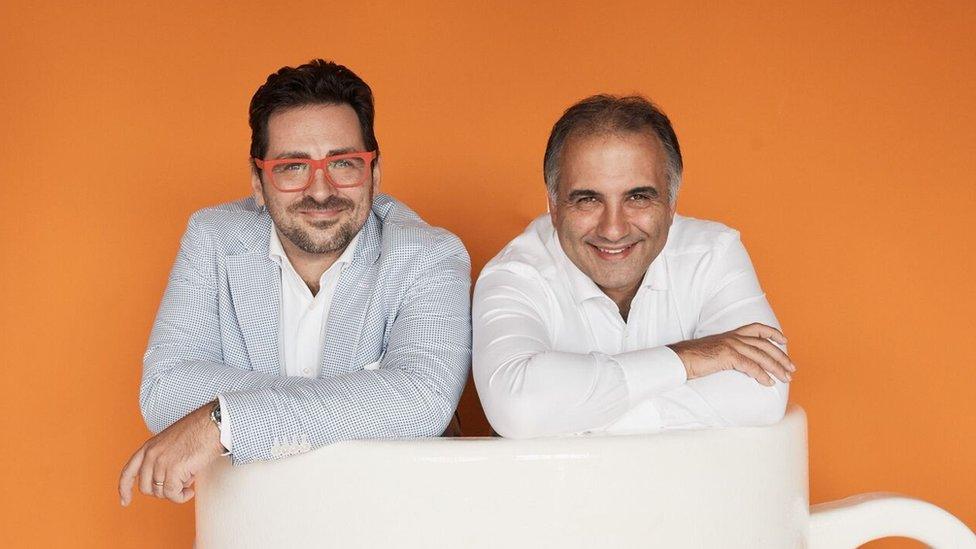
Arnold Coffee, founded by Alfio Bardolla (right), opened in 2009
It's not just 12oz Coffee Joint which has emerged to take advantage of these changing tastes.
US-style chain Arnold Coffee opened its first shop in 2009, also in Milan. It now has nine coffee shops with more set to open in Florence and Rome.
Italian founder Alfio Bardolla says the fact that their shop allows customers to stay longer and linger over a coffee is one of their big attractions.
"The Italian bar is based on a 'drink up and leave' mentality and if you're there for more than 10 minutes they get annoyed.
"We thought that if McDonald's had succeeded [in Italy], then so would American coffee."
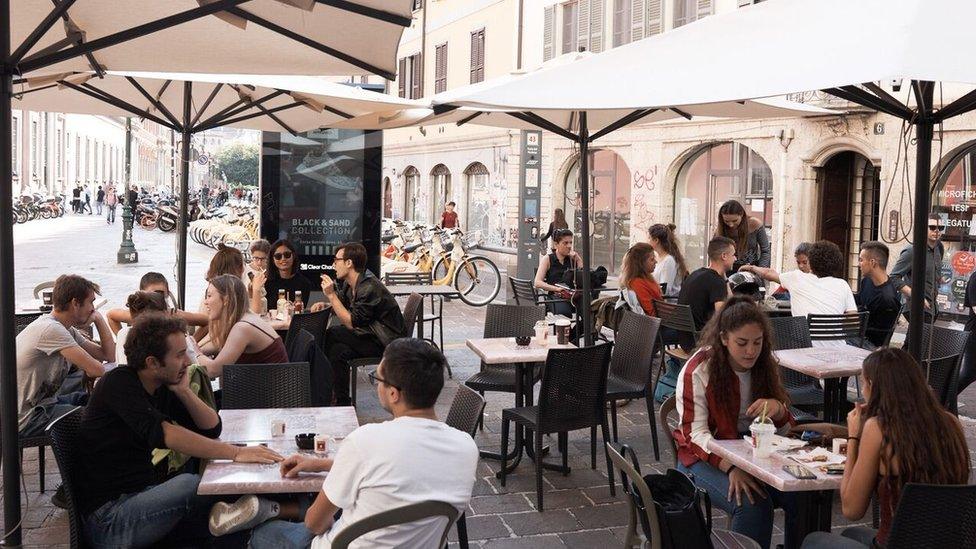
At Arnold Coffee customers stay longer than in traditional bars
Mr Bardolla baulks at the idea that selling US-style coffee means the quality suffers, arguing the fact it is often diluted means they have to use better quality coffee.
"People do not come to us to drink an espresso… but an espresso with our coffee is even better than the traditional bars. Our price is higher but the quality is higher."
One self-confessed coffee addict and Arnold customer, 22-year-old Alessia, is convinced.
"It's lighter than Italian coffee and I love that you can carry it around with you in the big paper cups," she says.
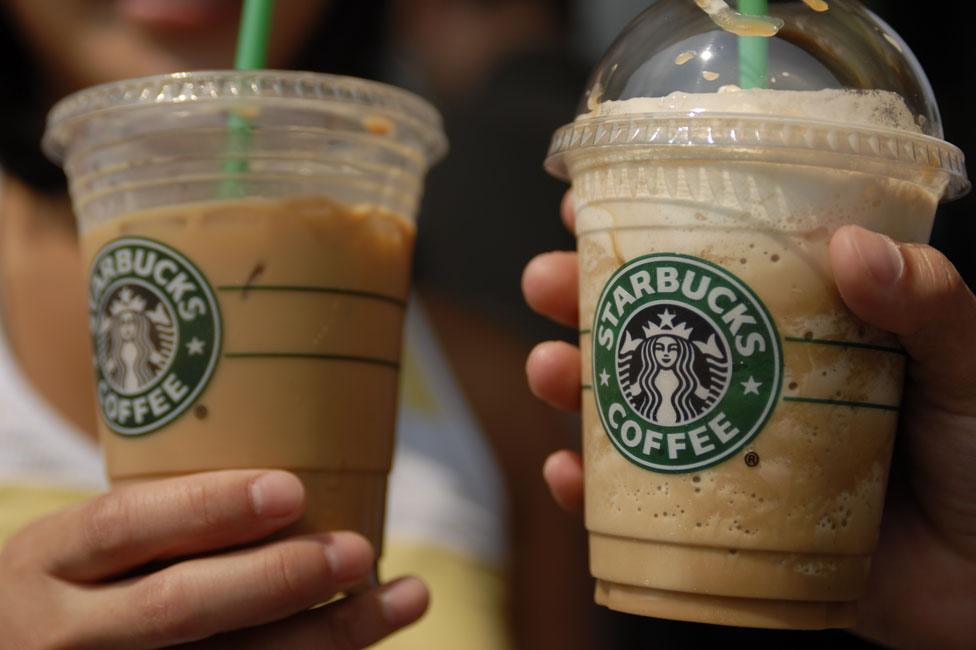
Starbucks says it is opening in Italy with "humility and respect"
Coffee giant Starbucks is betting on more US coffee fans like Alessia when it opens its first store in the country next year, a high-end, high-concept roastery in Milan two minutes from the Duomo and the historic Galleria Vittorio Emanuele II.
The American coffee chain has promised to enter the birthplace of the espresso "with humility and respect".
But what do traditional Italian coffee owners think about the shift in culture?
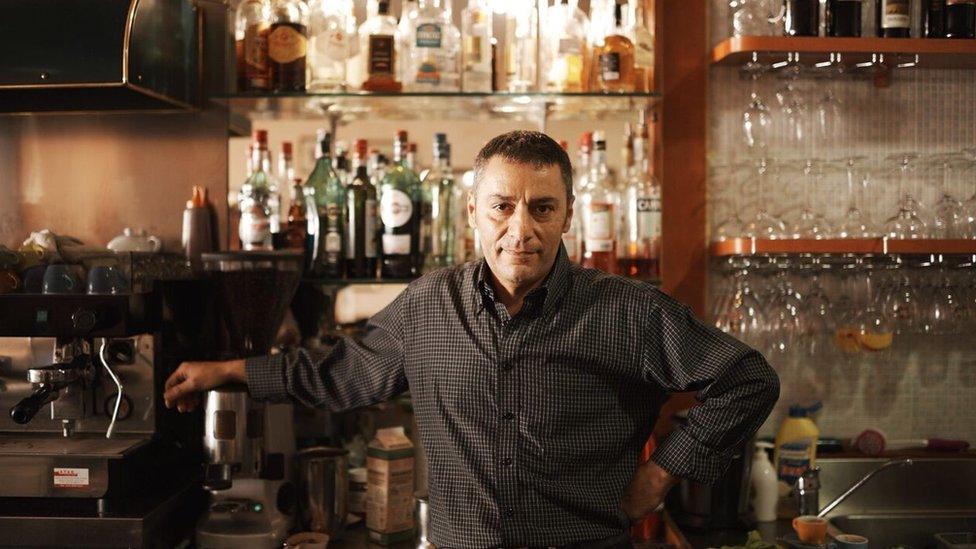
Caffe Rigoletto owner Vito Fortunato says they make US requests "the Italian way"
Vito Fortunato, owner of Caffe Rigoletto in Salsomaggiore Terme, in the province of Parma, says he believes American-style coffees, particularly the flavoured ones "are really bad for you".
Even when they get "American requests" he says they make it "the Italian way".
"In Italy for someone who wants to have a different style coffee we put a small drop of flavoured syrup or brandy or a drop of fresh whipped cream or a small scoop of ice cream but this is very traditionally Italian."
But he says the biggest loss from the growing numbers of young Italians choosing American-style coffee shops over their local neighbourhood espresso bars is nothing to do with flavour, but with culture.
"The customer sees the bar as a place to open up, to confide and have a chat and a point of human contact between two people.
"I see that this is slowly disappearing, but it is very important for our lives."